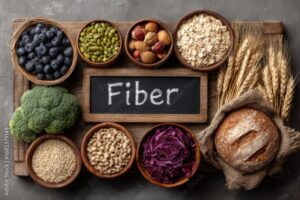5 Tips for Eating Healthy on a Soft Food Diet
August 1, 2025

Whether you’re recovering from dental surgery, adjusting to new veneers, or dealing with a jaw issue, a soft food diet is often necessary to protect your mouth while it heals. While soft foods are easier to chew and swallow, many people worry that they won’t get enough nutrients or variety. The good news is that with a little planning, you can still enjoy a balanced and delicious diet. Here are 5 tips for eating healthy on a soft food diet.
1. Focus on Nutrient-Dense Foods
When your food options are limited, it’s important to make every bite count. Instead of relying on refined carbs like white bread or mashed potatoes alone, try incorporating nutrient-rich choices. Examples include:
- Greek yogurt for protein and probiotics.
- Avocado for healthy fats.
- Mashed beans or lentils for fiber and protein.
- Cooked spinach or kale blended into soups for vitamins and minerals.
These options provide the essential nutrients your body needs for healing and energy, without sacrificing texture requirements.
2. Blend and Puree for Variety
One of the easiest ways to expand your options is by blending foods into a smooth consistency. A good blender can turn almost any meal into a soft, easy-to-eat dish. For example:
- Blend fruits and leafy greens into smoothies for a quick breakfast.
- Puree soups with vegetables, legumes, and lean meats for a filling lunch.
- Turn roasted vegetables into creamy dips or spreads.
Blending also helps keep meals interesting so you don’t feel stuck eating the same soft foods every day.
3. Choose Soft Protein Sources
Protein is crucial for healing, especially after dental surgery or illness. Luckily, there are plenty of soft protein options that don’t require heavy chewing:
- Scrambled eggs or omelets.
- Soft fish like salmon or tilapia.
- Tofu or tempeh in stir-fries or soups.
- Shredded chicken simmered until tender.
By rotating different protein sources, you’ll support your recovery while keeping meals balanced.
4. Don’t Forget Fiber
Many people on a soft food diet accidentally cut out fiber, which is essential for digestion. Instead of skipping it, look for soft or blended sources:
- Oatmeal or cream of wheat topped with mashed banana.
- Well-cooked vegetables like carrots, zucchini, or squash.
- Smoothies made with pears, berries, or applesauce.
- Mashed sweet potatoes or lentils.
Getting enough fiber will keep your digestive system healthy and prevent constipation, which is a common side effect when diets lack variety.
5. Plan for Balance
It can be tempting to rely on comfort foods like ice cream, pudding, or mashed potatoes when chewing is difficult, but balance is key. Try to build meals that include:
- A protein source for strength and healing.
- A soft fruit or vegetable for vitamins and minerals.
- A whole grain or complex carb for long-lasting energy.
This approach ensures you’re not just eating soft foods, but truly nourishing your body.
A soft food diet doesn’t have to mean bland or unhealthy meals. By focusing on nutrient-dense options, blending for variety, choosing protein wisely, keeping fiber in your meals, and planning for balance, you can stay healthy and energized throughout your recovery.
About the Practice
Looking for a glow-up for your smile? Indigo Dental of Daytona Beach has just the thing for you: porcelain veneers! Whether you have chips, cracks, or discolored teeth, our natural-looking prostheses can mask a number of cosmetic issues and give you a brand new look that you’ll be happy to show off when snapping pictures! Come see why we’re one of the most trusted providers of cosmetic dentistry in Daytona Beach. Schedule your appointment online or call (386) 253-3629.
No Comments
No comments yet.
RSS feed for comments on this post.
Sorry, the comment form is closed at this time.
